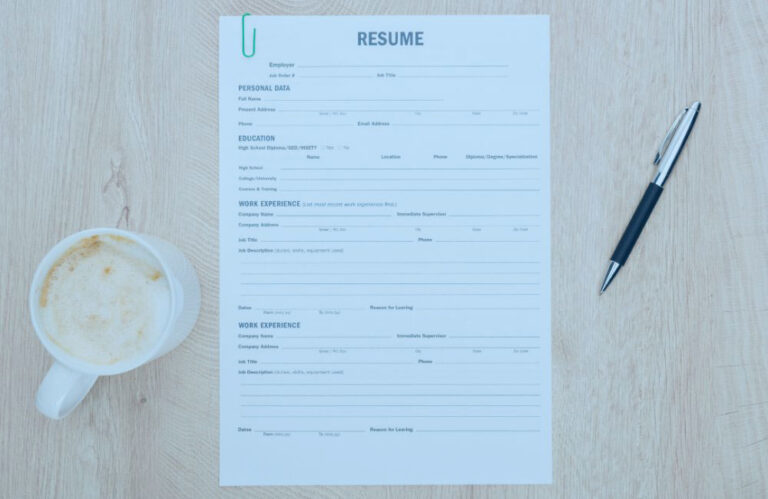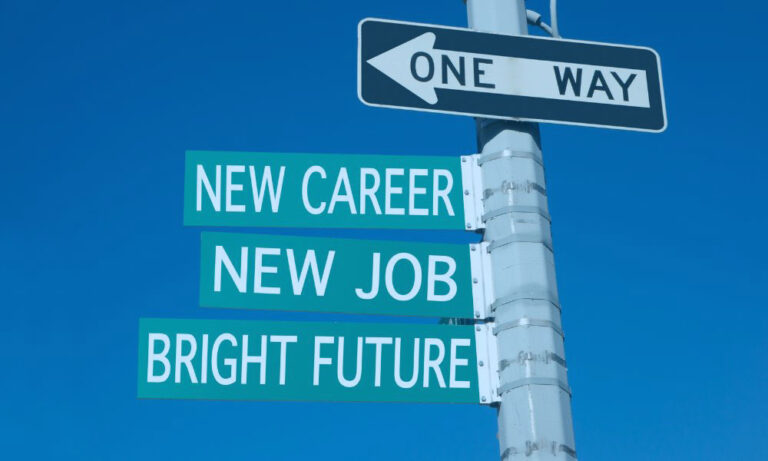Do Employers Care About Gaps in Your Resume?
Employers’ perspectives on employment gaps can vary widely. While some employers view gaps as red flags, others are more understanding and willing to consider the reasons behind these career gaps[1]. The key is to effectively address these employment gaps in resumes[2] and interviews, explaining them in a way that demonstrates the candidate’s value and potential contributions to the company.
Understanding Employment Gaps
Employment gaps refer to periods when an individual is not employed in a professional capacity. Think of employment gaps as blank pages in the story of your career. Some employers frown upon these gaps because they believe a continuous job history shows you’re responsible and professional. Yet, in your professional journey, these blank pages have their purpose. But it’s important to know that there can be good reasons for these gaps and must explain the secrets to your transformation.
Defining Employment Gaps
Employment gaps are defined as periods of unemployment that last for several months to years. They can occur for a myriad of reasons, such as personal health issues, caregiving responsibilities, or pursuing further education. In today’s dynamic job market, employment gaps are not uncommon and can often be effectively addressed on the resume and during interviews. According to the U.S. Bureau of Labor Statistics, breaks in employment are a common aspect of modern career trajectories, and they provide statistical data to understand this trend.
Common Reasons for Employment Gaps
There are numerous reasons people experience gaps in employment. Some of the common causes include:
- Health Issues: Individuals might take time off to address personal health concerns, including mental health. The Centers for Disease Control and Prevention[CDC][3] provides extensive resources on managing health and work.
- Caregiving: Taking care of family members, such as aging parents or children, is another common reason. Resources like the Family and Medical Leave Act [FMLA][4] can be referred to understand the legal protections for such breaks.
- Education and Training: Some people take breaks to upskill, retrain, or complete a degree to enhance their employability. Websites of educational institutions and platforms like Coursera[5] or edX[6] are useful for exploring educational opportunities.
- Personal Reasons or Sabbatical: Sometimes, people take a break for self-discovery, travel, or to address personal issues.
The Employer’s Perspective
Employers view employment gaps differently. While some might consider it a red flag, others are empathetic and consider the reasons behind the gap. The key for employers is to understand if the candidate has maintained or enhanced their skill set during the break and if they are ready to re-enter the workforce productively.
A study by CareerBuilder found that hiring managers are mostly worried about whether a candidate can adjust to the workplace and stay up-to-date with the latest trends in their field after a long time without a job. They check for signs that show the candidate is committed to learning, and adaptable, and how they spent their time during the job gap. Websites like SHRM can give employers advice on how to handle hiring candidates with job gaps, making sure they evaluate them fairly and thoroughly for the job.
The Impact of Employment Gaps
Employment gaps affect both job seekers and employers in various ways. They influence hiring choices, take a toll on job seeker’s well-being, and require strategies to lessen their effects. Recognizing these impacts helps individuals handle gaps more effectively and boost their chances of getting hired.
On Hiring Decisions
Employment gaps can influence employers’ perceptions of candidates. While some employers are understanding, others may question the candidate’s professionalism and commitment. According to a report by HireRight[9], a significant number of employers worry about hiring people with long gaps in their work history. Unless you explain these gaps well, it might make employers not want to hire you. So, it’s really important to talk about these gaps in your resume and job interviews to make employers feel better about it.
Psychological and Emotional Effects
The psychological and emotional effects of employment gaps on individuals are often overlooked but are equally significant. Job seekers with prolonged periods of unemployment may experience decreased self-esteem, increased levels of anxiety, or even depression. APA[10]provides resources on the psychological impacts of unemployment and strategies to cope with them. The emotional toll can also affect the individual’s job search effectiveness, leading to a vicious cycle of prolonged unemployment.
Overcoming the Challenges
There are several strategies to mitigate the negative effects of employment gaps. Firstly, individuals can engage in volunteer work or freelance projects to keep their skills sharp, as suggested in the article from NovoResume[11]. Online learning platforms like LinkedIn Learning[12] and Khan Academy[13] offer opportunities to upskill and stay updated with industry trends.
Furthermore, networking can play a critical role in overcoming the challenges associated with employment gaps. Connecting with industry professionals via platforms like LinkedIn[14] or joining professional associations in one’s field can open up job opportunities.
Lastly, being prepared to address the gap effectively in the resume and interviews is crucial. Candidates should focus on showcasing their skills, accomplishments, and how they’ve stayed professionally engaged during the gap, providing reassurance of their readiness and ability to contribute effectively to prospective employers.
Addressing Gaps in Your Resume
Presenting employment gaps effectively on a resume is pivotal for job seekers aiming to communicate their suitability for a job role. By being honest, using positive language, and referring to professionally crafted examples and templates, individuals can turn potential vulnerabilities into opportunities to demonstrate their resilience, adaptability, and readiness to contribute to prospective employers.
Honesty and Transparency
Being honest and transparent about gaps in a candidate’s work history is really important. If a candidate had times when they didn’t have a job, it’s a good idea for the candidate to talk about them and also talk about the positive things the candidate did during those times. Employers like it when a candidate is honest because it shows that the candidate is a trustworthy and professional person. The U.S. Department of Labor[15] also says that clear communication and honesty are crucial in work relationships because they help build trust between employers and candidates.
Using Positive Language
Indeed’s advice on explaining employment gaps[16] underscores the importance of positive language. Instead of focusing on the unemployment period, candidates should emphasize the skills and experiences gained during the gap. Whether through volunteer work, freelance projects, or further education, illustrating continuous learning and development can mitigate the potential negative impacts of employment gaps. This way, candidates can shift the focus from employment gaps to the new skills and abilities they developed during that time.
Examples and Templates
Job seekers can find practical examples and templates on various platforms to help them address employment gaps in their resumes effectively. LinkedIn’s advice[17] provides advice on creating resumes that highlight skills, achievements, and the ability to explain career gaps.
By using these resources, candidates can personalize their resumes, ensuring they tell their career stories convincingly, even when they have employment gaps. Activities like upskilling, volunteering, or consultancy during these gaps can transform potential weaknesses into demonstrations of resilience, adaptability, and continuous learning.
Incorporating these aspects, job seekers can craft resumes that not only address employment gaps effectively but also emphasize their improved skills, readiness, and the value they can bring to potential employers. The key is to convey a story of personal growth, adaptability, and enhanced capabilities gained during employment gaps, transforming potential challenges into opportunities for professional development.
Leveraging Social Media
Social media platforms are powerful tools for job seekers to showcase their skills and connect with potential employers. LinkedIn, particularly, is a hub for professionals and organizations alike. Creating a comprehensive and SEO-optimized LinkedIn profile, including detailing projects, endorsements, and recommendations, can boost one’s online presence. Job seekers should also consider joining industry-specific groups on LinkedIn and engaging in discussions to enhance visibility. LinkedIn’s blog provides various tips on optimizing profiles and leveraging the platform for job search.
Furthermore, platforms like Twitter and Facebook can also be instrumental when used professionally. Sharing content related to one’s field, engaging with industry influencers, and showcasing expertise can attract potential employers’ attention.
Building an Online Portfolio
An online portfolio is a dynamic way to show off your talents and accomplishments, and it’s particularly important for professionals in creative fields like graphic design, writing, and software development. Platforms like Behance[20] and GitHub[21] are great spaces for designers and developers to display their projects.
Job seekers should include a variety of works in their portfolio. To showcase a diverse range of their work to highlight the depth and breadth of their skills. This could include case studies, projects they’ve worked on, or contributions to open-source platforms. A well-organized online portfolio not only addresses any concerns about employment gaps but also demonstrates a person’s ongoing dedication to their profession, their commitment to improving their skills, and their readiness to contribute effectively to potential employers.
By using these digital strategies, job seekers with employment gaps can effectively communicate their unique value. They can show how their skills and experiences align with what prospective employers need, positioning themselves as valuable assets ready to contribute to the success of any organization.
Importance Of Learning About Real Stories and Case Studies In The Hard Times
Real-life stories and case studies can offer insights, encouragement, and practical strategies for professionals experiencing employment gaps. These stories show the human aspect of unemployment, highlighting the resilience, innovation, and adaptability individuals demonstrate during these periods, and the growth that can emerge from facing and overcoming such challenges.
Success Stories
There are numerous accounts of professionals who have turned employment gaps into opportunities for growth, learning, and career advancement. Websites like The Muse[22] often tell stories of people who managed to do well after being without work for a while. For example, someone might take time off to learn new things or do volunteer work, and when they go back to work, they have more skills, and a wider view of things, and are more valuable to employers.
Forbes[23] also shares stories of entrepreneurs who started their own businesses during employment gaps. These stories show that not having a job can sometimes lead to new innovation, entrepreneurship, and the development of new career paths.
Lessons Learned
Learning from the real-life experiences of others can be invaluable. Many professionals share their journeys, including the challenges faced during employment gaps and the strategies employed to overcome them, on platforms like Medium[24]. These stories often include reflections on the lessons learned, such as the importance of networking, staying updated with industry trends, and maintaining a positive mindset.
Additionally, platforms like LinkedIn offer a space for professionals to share their stories, insights, and lessons learned from navigating career gaps. These narratives often include strategies for maintaining professional relevance, building a personal brand, and effectively communicating the value proposition to potential employers despite employment breaks.
Expert Advice
Career coaches and HR professionals play a pivotal role in shedding light on the practical aspects of managing employment gaps. Websites like CareerBuilder[25] and Glassdoor[26] offer expert advice on addressing unemployment periods, from crafting compelling resumes to preparing for interviews.
Insights often stress the importance of being honest, staying positive, and taking initiative. Professionals are advised to openly talk about any gaps in their employment history, focus on the skills and experiences they gained during those times, and show they’re ready and capable of adding value to potential employers.
In conclusion, real stories and examples from people who’ve successfully dealt with employment gaps show us that, although it can be tough, these periods can become opportunities for personal and professional development. By learning from other’s experiences and insights, professionals facing employment gaps can gain practical strategies, motivation, and inspiration to use these potential weaknesses as stepping stones to improve their career prospects and make meaningful contributions to future employers.






